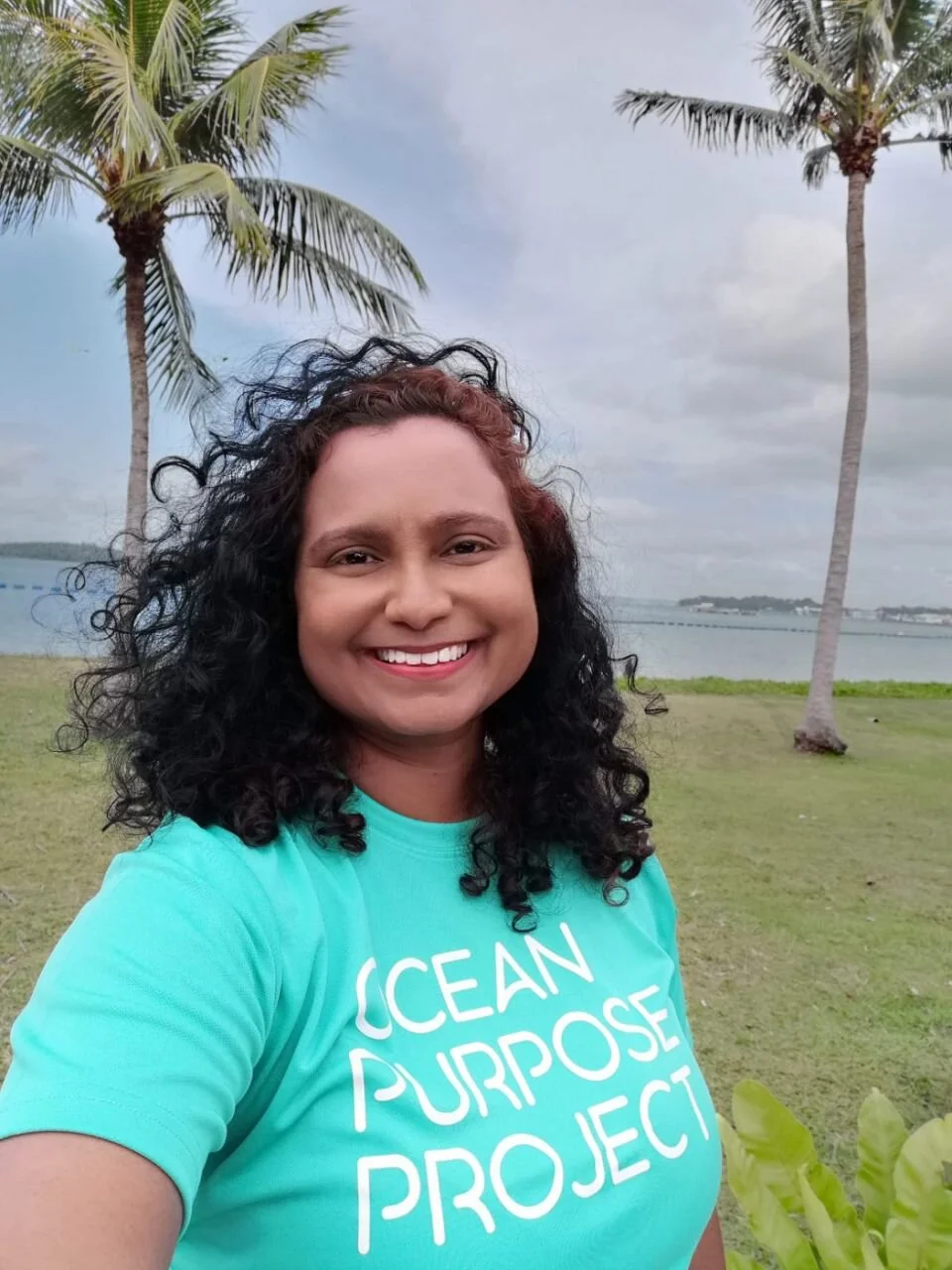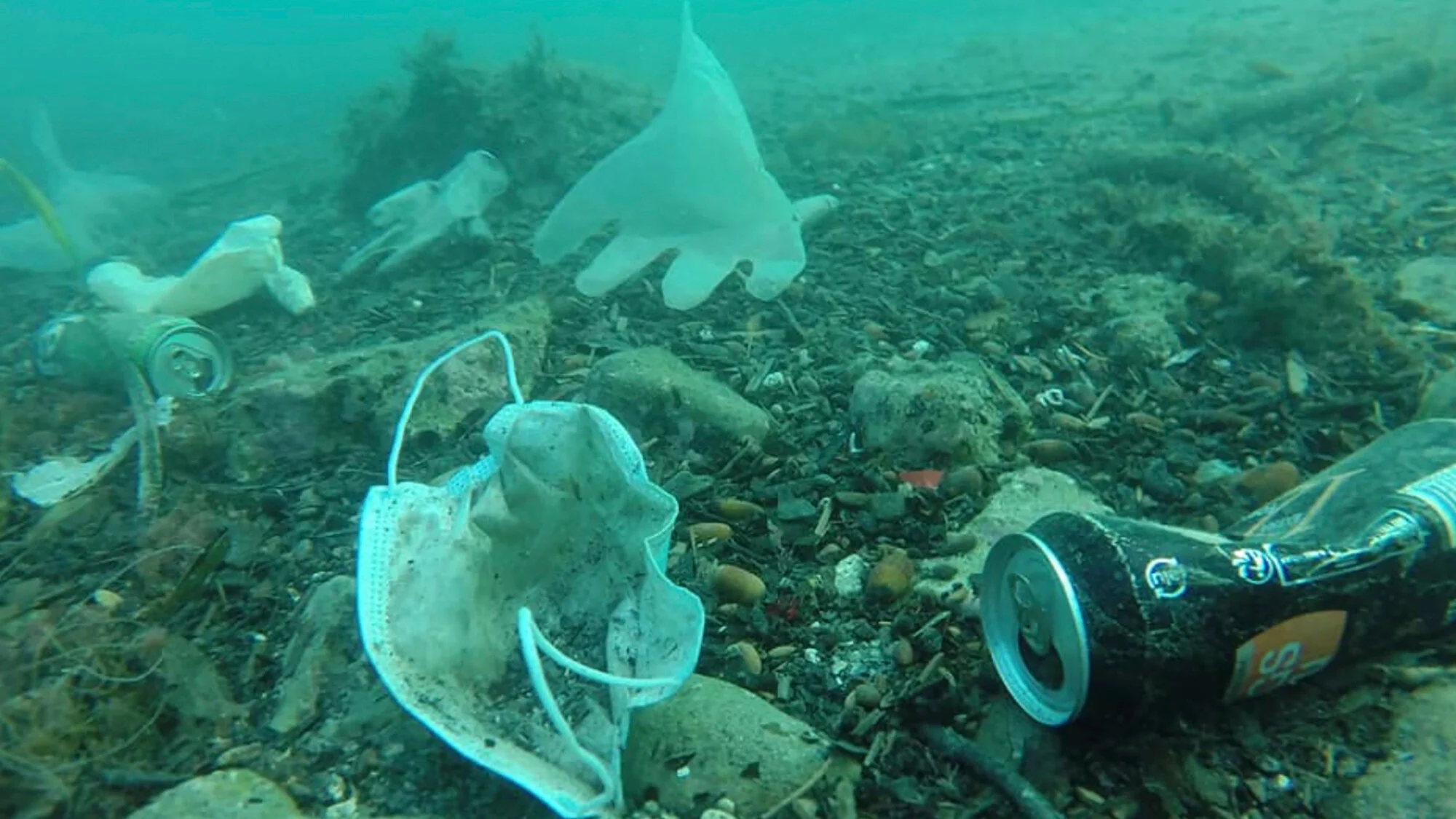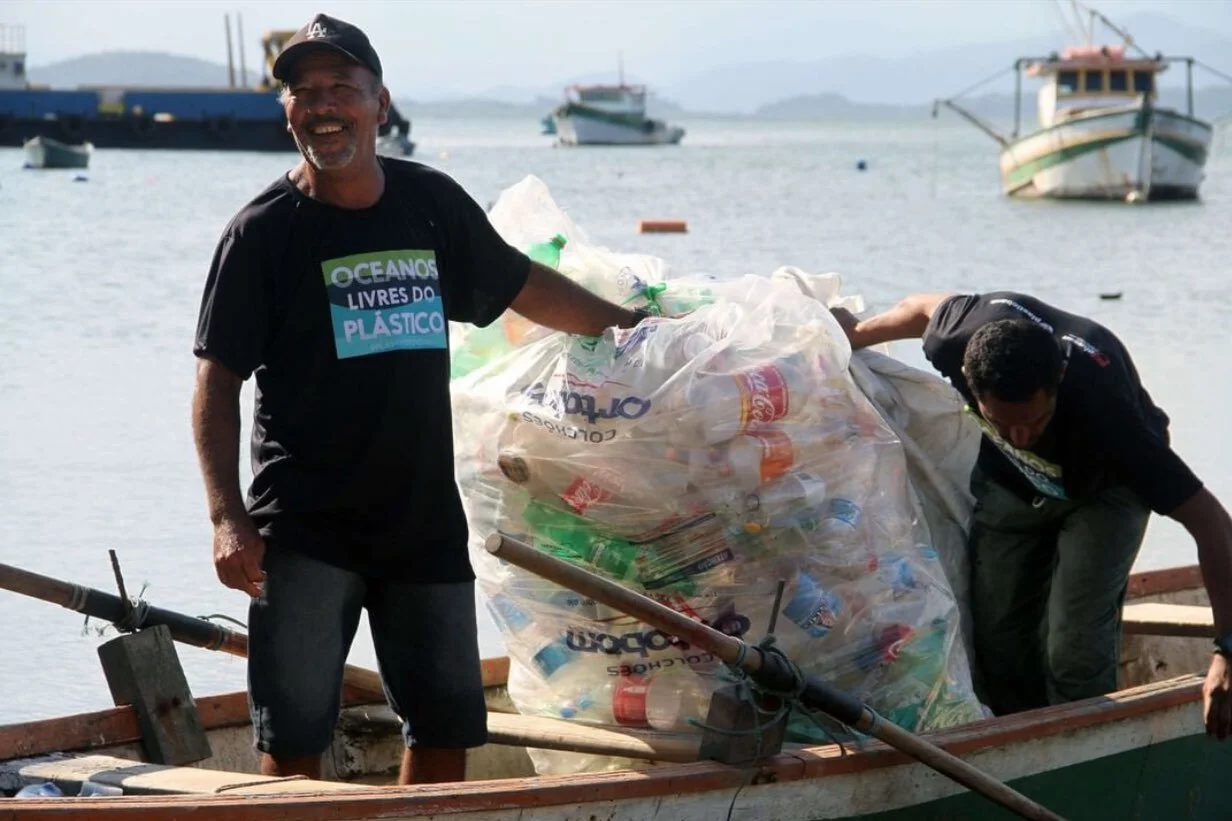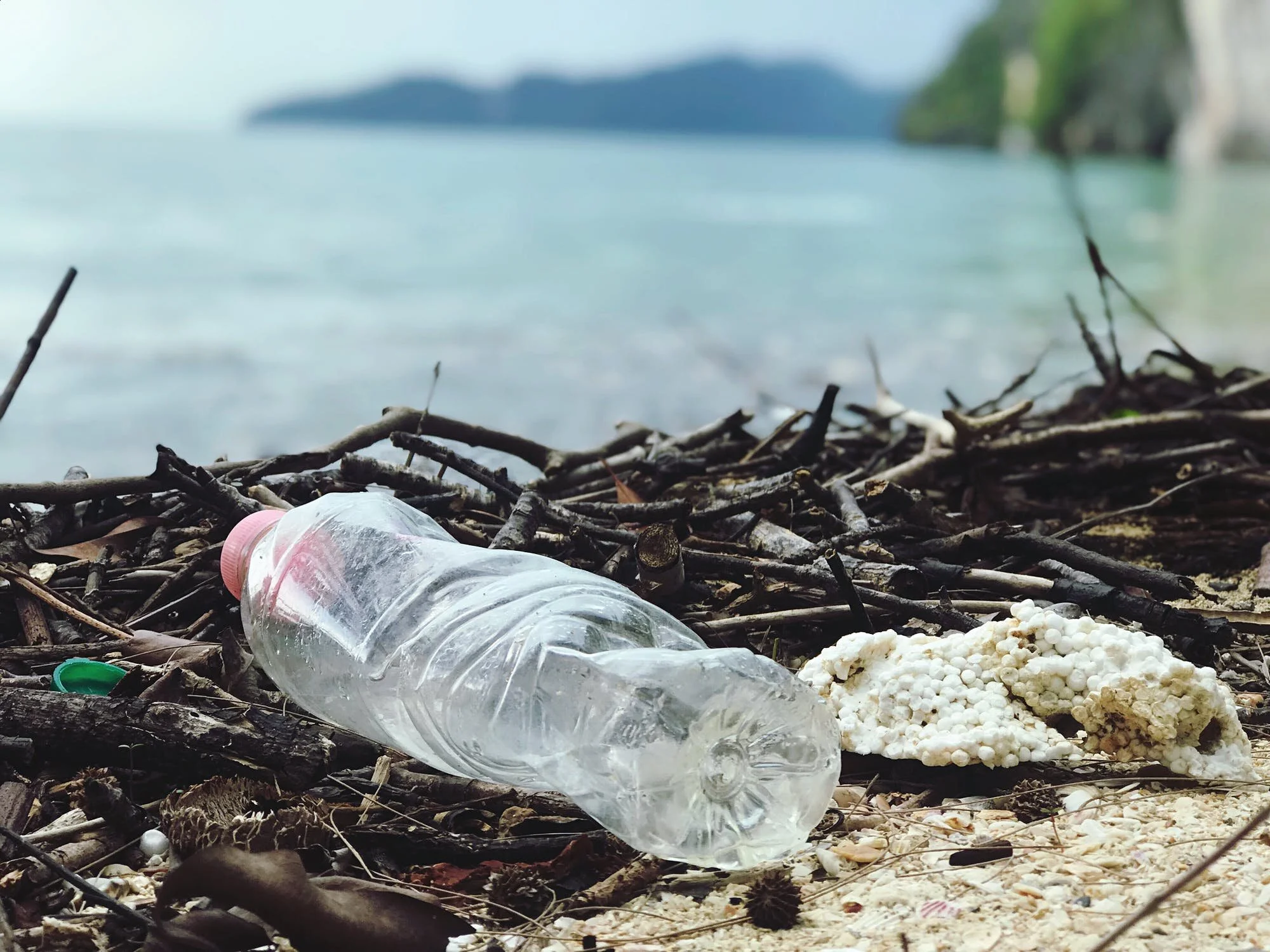How a Singaporean Social Enterprise Is Fighting Ocean Plastic Pollution
When it comes to plastics in the ocean, we all know it’s a massive problem. But how do you successfully reintroduce the problem in a fresh way that grabs people’s attention and truly drives large-scale impact? And how do you knock on ALL doors – including the “big bad polluters”?
We asked Mathilda D’Silva, the CEO and Founder of Ocean Purpose Project, a Singapore-based social enterprise solving the ocean plastic pollution crisis through technological advances and behavior changes, how her organization tackles these questions.
FMC: Defeating ocean pollution can feel a bit like slaying Goliath, especially when there’s a single garbage patch the size of Texas! What is your strategy to combat this issue?
D’Silva: Our goal to eliminate plastic pollution in our seas is split into three steps:
1) We work on implementing plastic to fuel technology on remote Asian islands in order to deter people from throwing plastic in the ocean and creating a fuel system for them to monetize.
2) We introduce the use of bioplastics (biodegradable plastic made from shells and seaweed) that will greatly reduce the amount of plastic ingested by marine life, as well as reduce water pollution.
3) We drive behavioral changes in communities, such as beach cleanups and education on ways to make changes that can help the environment.
FMC: Plastic pollution, like climate change, is an issue that's so widely discussed that it oftentimes falls on deaf ears. How do you break through to people and introduce the problem in a fresh way that grabs their attention and also drives them to act?
D’Silva: The top five marine plastic trash offenders come from Asia, inflicting $1.3 billion in damage annually to fishing, shipping, and tourism industries in the region – plastic chokes wildlife, the environment and us humans. We’ve all seen the stats and frankly, people have become immune. The ocean plastic crisis is not a waste problem, it’s a design and behavior problem. Current solutions are great initiatives, but we need a MINDSHIFT. By bringing everyone’s ideas to the table, people can focus on solution engineering instead of just driving awareness of the “waste issue.”
Case in point, we are working with religious groups in our home base of Pasir Ris to combine beach clean-ups with prayer. A priest who joined us on Saturday came up with an idea to study the plastic particle movement in coves of beaches and implement a “boom collector” that can absorb the microplastics. A PRIEST! With NO ENGINEERING BACKGROUND came up with this. That’s why our work with communities are so important – solutions come from our communities.
Photo by: Plastic Bank
FMC: We love that you're working with EVERYONE to combat the issue of plastic pollution in the oceans: Scientists, industry, social enterprises, kids, the rich, the poor, the middle class, NGOs, governments, creatives, AND the "big bad polluters" themselves. How do you engage the "big bad polluters" and push them to change their ways?
D’Silva: Our projects start with simple questions. For example, since plastic comes from oil, why can’t we turn it back into oil-creating a profit motive – trash to treasure? This is the bedrock of our current project with SHELL to investigate how we can deploy plastic to fuel solutions to poor coastal communities most in need of waste management. This requires a collaborative mindset focused on shared objectives – not always easy in a sustainability landscape filled with stiff competition by NGOs for resources, no common knowledge base, and high barriers to entry.
The OPP way is to always find OPPORTUNITY in every closed door – I must be hard of hearing because I can’t seem to hear when someone says “No./Can’t be done./ What’s your track record?/ Who are you to propose such a solution?”
Partnerships and projects that are focused on poor coastal communities, instead of how many IG stories we push out, and digging deep into the kinds of behaviors we want to promote are vital.
Change has to begin with ourselves. I started OPP because my own health was affected by ocean plastic pollution. My daily struggle helps me to carry the hopes of every person affected by water pollution – hopes that someone, somewhere will think beyond themselves and disrupt the status quo.
FMC: What was the most impactful campaign to-date that the Ocean Purpose Project led? And what did it lead to?
D’Silva: During lockdown in Singapore, no one was allowed to swim, walk on the beaches, or paddle. We lost so many clients within 2 weeks. We had loads of volunteers, but absolutely no projects that could have been executed. I noticed that Singapore’s COVID cases were mainly coming from migrant workers stranded in dormitories. We received word that many of them couldn’t leave the dorm rooms, some hadn’t showered with soap in a month, and some were so hungry for a simple meal of fresh vegetable curry, fruits and rice.
Ocean Purpose Project staff decided to push out continuous social media mobilizations. OPP mentors and volunteers then sprang into action and during the months of lockdown, we sent 5,000 sets of shampoo, shavers, and soaps, as well as 220K hot meals of curry, rice, proteins and fruits to migrant workers stranded in dormitories. Our ocean conservation volunteers were so happy to be involved in helping the migrant workers – we were even having to turn people away from helping!
What was important for me was not to sit on my hands and cry because I lost clients or because “I’m working in ocean conservation, this is not my area of expertise.” I had to do something. But we had no money! That didn’t stop a wave of volunteers and donations of items and ingredients to help us move along. Some of the messages of the workers would have me in tears some days, asking if I was getting enough rest, sending blessings, and happy pictures to our staff. Our campaign was meant to help them, instead I feel like they gave us our sanity and humanity during this period.
FMC: What is a lesser-known way to prevent plastic pollution?
D’Silva: A simple way to reduce plastic pollution is just to change the way we eat and drink. I eat in the restaurant and limit takeaways so I can use a proper plate, fork and spoon and drink out of a cup.
I mostly eat from home – shopping is done at wet markets with reusable bags. It’s great on the pocket and reduces waste through pre-packaged meals as well.
We loved getting to hear more about The Ocean Purpose Project and how they’ve been helping the fight to end plastic pollution! Connect with them at oceanpurposeproject.com or check them out on Instagram @oceanpurposeproject!







